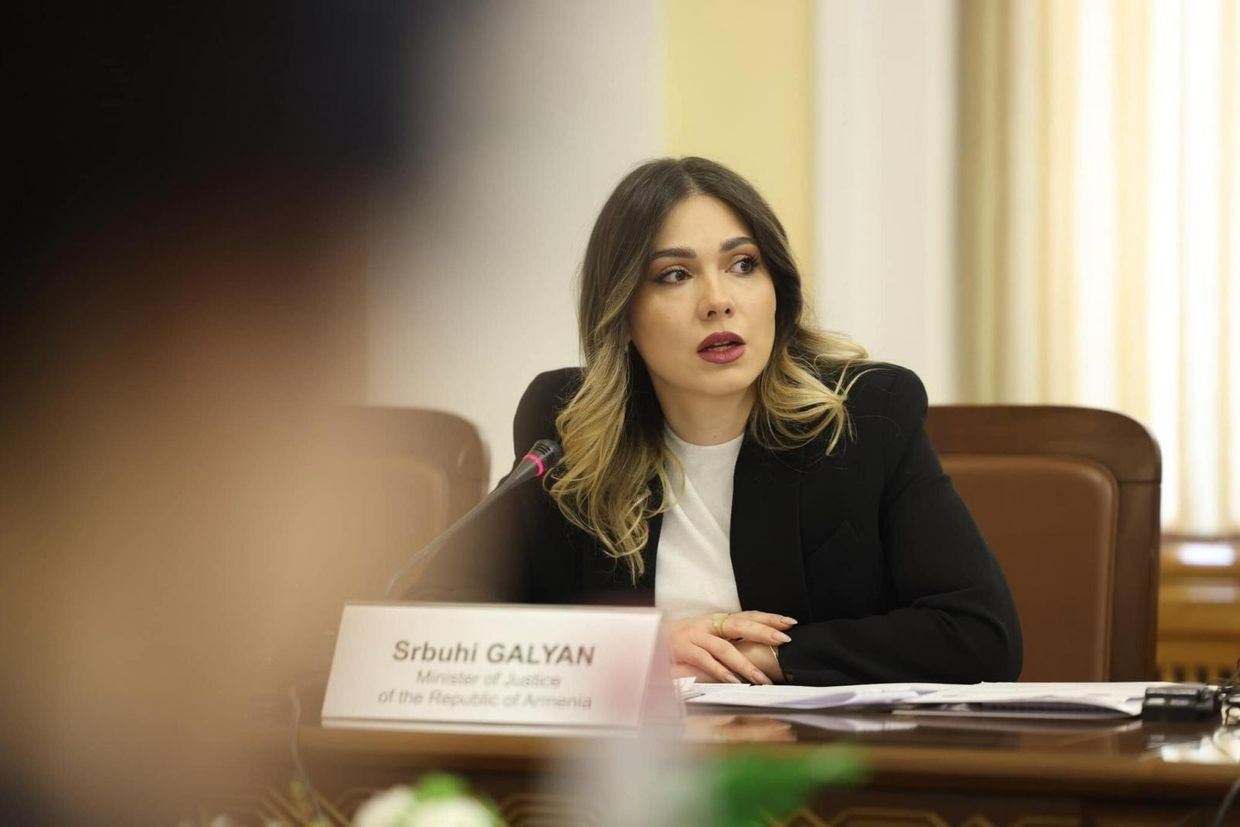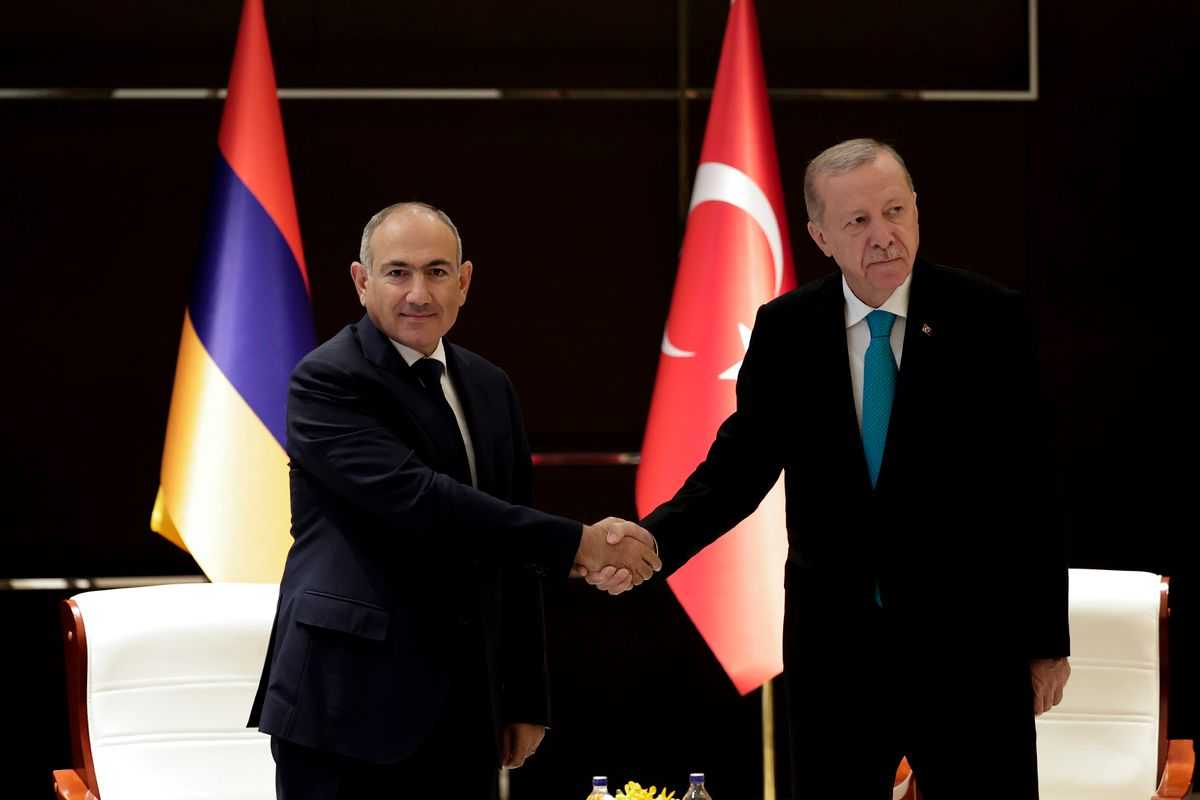Armenia’s Justice Minister claims Azerbaijani demands for signing the peace treaty are not ‘preconditions’

Armenia’s Justice Minister Srbuhi Galyan has said that she does not consider Azerbaijan’s stated preconditions to signing the peace treaty to be preconditions, additionally claiming that neither does the Armenian government.
The statement was made on Thursday, during which Galyan reiterated Armenia’s stance of being ‘unequivocally ready to sign a peace treaty’.
Galyan stressed that ‘peace has no alternative’ and that their action ‘must be aimed at the final establishment of peace’.
‘But as for the concept, we should move forward towards the signing of the peace treaty, I believe it will be made known to the public very soon’, Galyan said without further elaboration.
In late March, Armenian Foreign Minister Ararat Mirzoyan stated in an interview to the Brazilian newspaper Folha that Azerbaijan ‘is introducing various new preconditions’, calling them ‘artificial ones’, that make the signing of the peace treaty ‘more difficult’.
Previously, in mid-March, Mirzoyan stated that during the peace talks, the sides had an exchange of views on each other’s demands, but Armenia ‘never accepted’ the legitimacy of the two named preconditions, or ‘considered them part of the agenda’, and ‘never negotiated on them’.
On 13 March, both Azerbaijan and Armenia separately announced that negotiations to a peace deal had been concluded. On the same evening, however, the Azerbaijani Foreign Ministry named amendments to Armenia’s constitution and the dissolution of the ‘obsolete and dysfunctional’ OSCE Minsk Group as preconditions to signing the deal, thereby hindering the progress made to finally signing a historic deal.
The two preconditions were reiterated by top Azerbaijani officials, including President Ilham Aliyev.
‘Once these two conditions are met, there will be no obstacle to signing the peace treaty. As they say, the ball is in Armenia’s court. If Armenia is genuinely interested in signing the peace treaty, it has to accept these two legitimate conditions of Azerbaijan’, Aliyev said on Wednesday.
On Thursday, when asked whether Armenia was ready to accept Aliyev’s demands, Galyan only repeated that ‘the government is ready to sign a peace treaty’.
Asked if, against the backdrop of Azerbaijan’s demands, Armenia would consider it possible to have the new text of the constitution earlier than it was stated before — 2026, Galyan said that drafting a new text ‘requires long-term work by specialists’, which could not be done earlier than the previously mentioned time-frame.
The peace process in the agenda
The peace process between Armenia and Azerbaijan has been touched upon in high-level discussions between several countries.
On Friday, Reuters reported that Eric Jacobs, a senior adviser of the State Bureau of Energy Resources of the US State Department, while speaking at an energy event in Baku, said that President Donald Trump was looking forward to Azerbaijan and Armenia signing a long-awaited peace treaty. Jacobs also was quoted as saying that the peace treaty would usher in ‘a new era of security and prosperity’ for the South Caucasus region.
Earlier this week, on Wednesday, French Foreign Minister Jean-Noël Barrot and his Turkish counterpart Hakan Fidan ‘stressed’ that the normalisation of relations between Armenia and Azerbaijan should ‘enable the South Caucasus to become an area of peace, integration, and cooperation’.
On the same day, Barrot criticised the Azerbaijani preconditions at the French Parliament
‘Azerbaijan is now demanding a revision of the Constitution of [...] Armenia. This new precondition is unacceptable and delays the signing’, Barrot said, according to the French-Armenian magazine Nouvelles d'Arménie.
Azerbaijan’s Foreign Ministry rejected Barrot’s statement, in turn calling ‘unacceptable’ the ‘questioning Azerbaijan’s demand to amend the Armenian Constitution’.
On Thursday, while in Armenia, Magdalena Grono, the EU Special Representative for the South Caucasus, had a meeting with Prime Minister Nikol Pashinyan and Foreign Minister Ararat Mirzoyan. Pashinyan’s office reported that Grono ‘highlighted the signing of the agreement and expressed confidence that it will contribute to ensuring long-term peace and stability in the region’.
On the same day, Iran’s Ambassador to Armenia, Mehdi Sobhani, according to Armenpress, expressed Iran’s readiness ‘to help preserve peace, in order for the ceasefire not to be breached, and the parties [Armenia and Azerbaijan] be able to reach the signing of the peace agreement’.
Sobhani added that they consider, in this regard, ‘the 3+3 is a good format’.
Sobhani also said that ‘our region will not withstand any tension’ and that Iran hopes that ‘all parties will maintain these principles aimed at peace and calm’.
Editor’s note: An earlier version of this article contained sentences 'the minister’s statement looks to contradict the official Armenian stance’ and ‘the statement appears to indicate a shift in Armenia’s stance'. The sentences have been removed after OC Media received a letter from the Justice Ministry that clarified the minister’s statements.









